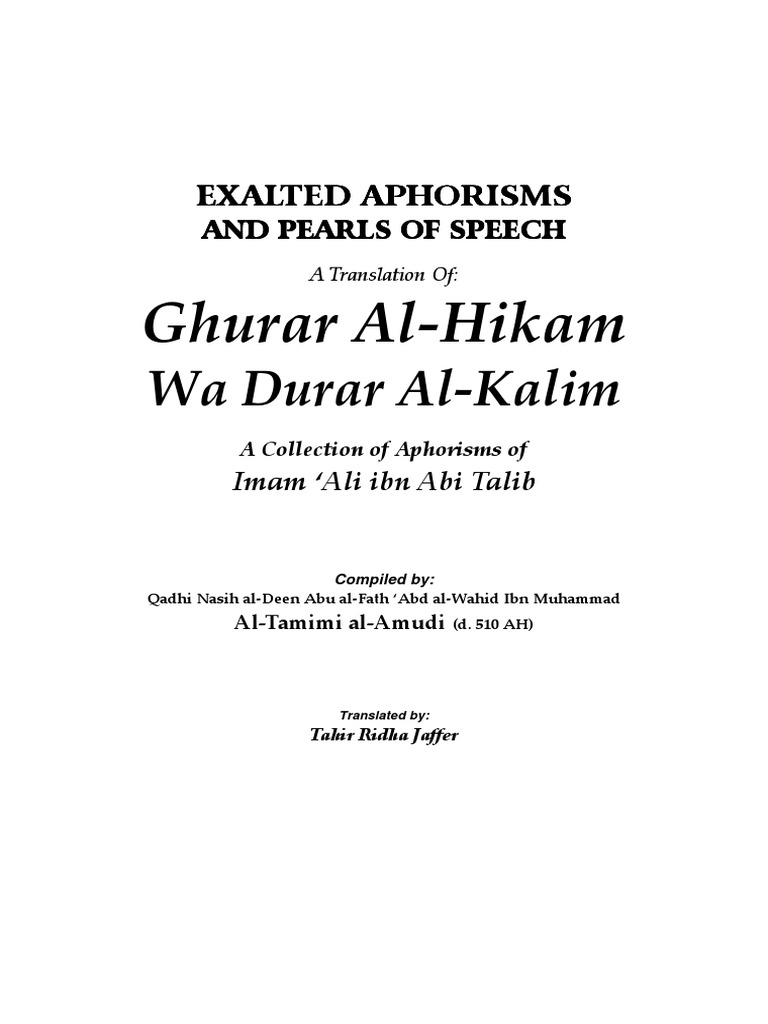The teachings of Shia Islam encompass a vast and intricate tapestry of thought, deeply woven through both historical and contemporary discourse. Among the most esteemed texts within Shia literature is “Ghurar al-Hikam,” a compendium attributed to the teachings of the Imams, particularly the Ahl al-Bayt. This parchment resonates not only with religious sentiment but also embodies profound philosophical principles and ethical imperatives. This article endeavors to unravel the core themes of “Ghurar al-Hikam,” illuminating its impact on perspective and spiritual introspection.
One of the most compelling elements of “Ghurar al-Hikam” is its emphasis on the virtues of knowledge and wisdom. The text articulates, through succinct aphorisms, notions that challenge conventional views. In a world often overwhelmed by superficiality, the teachings implore adherents to delve deeper into their own consciousness and societal constructs. With phrases that echo through time, the text encourages seekers to cultivate knowledge as both a sacred duty and a pathway to understanding the divine. In the pursuit of wisdom, individuals are reminded of the necessity of discernment—a hallmark of Shia thought—enabling them to navigate the labyrinth of life with clarity and purpose.
Furthermore, “Ghurar al-Hikam” underscores the ethical dimensions of Islamic teachings. The importance of justice, compassion, and altruism resonates through its pages, presenting a holistic approach to human interaction. The text insists that true belief is manifested not merely through ritual observance, but through the embodiment of moral virtues. Such teachings illuminate the spiritual significance of ethical behavior, aligning daily conduct with divine expectations. This interplay between spirituality and morality raises pertinent queries about the nature of faith: Can one truly claim adherence to Shia Islam while neglecting the ethical obligations it prescribes? The text is both a mirror and a guide, compelling the reader to reflect on their personal moral compass.
The concept of justice is particularly pivotal in “Ghurar al-Hikam.” It advocates for equitable treatment in all human affairs, a pillar of both Shia and broader Islamic philosophy. Justice is not merely a societal construct; it is a divine imperative. This revelation invites individuals to ponder the implications of their actions and the cycle of retribution and justice that governs human interaction. The interspersing of theoretical and practical examples within the text serves to enhance understanding, prompting readers to contemplate how justice can be woven into the fabric of everyday life.
Tags
Share this on:
[addtoany]


